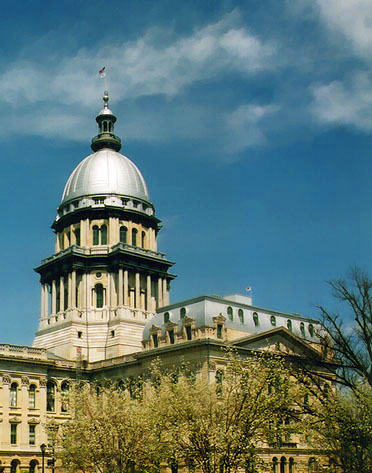
With negotiations between Gov. Bruce Rauner and the American Federation of State, County and Municipal Employees virtually non-existent, Wisconsin labor unions offer telling words of their own struggle five years ago.
Back in 2011, the state of Wisconsin was in a similar situation until Republican Gov. Scott Walker passed Act 10, which dismantled collective bargaining for public unions.
Now on the verge of a union crisis here in Illinois, AFSCME is hoping that House Bill 580 would prevent Rauner from imposing his own will on the state’s union force. The bill would shift negotiations into arbitration, allowing an independent third party to hear both sides before rendering a final decision, an act Rauner is attempting to prevent.
Approved in the Illinois House last month, the bill passed through the Senate 38-17 on March 3 and sent to the governor.
“There are pieces that emulate what Rauner is trying to do in Illinois to what Gov. Walker did here in Wisconsin,” said Robert Kraig, executive director of nonprofit advocacy group Citizen Action of Wisconsin.
“Democrats in Wisconsin,” he added, “agree that the point of Act 10 was not to limit or weaken unions, it was to destroy them.”
The ramifications of Act 10 are still felt today.
Last year, Wisconsin had the largest decrease in union density in the country, Kraig said. An underlying key that helped in the passage of Act 10, Kraig added, was the recall elections in highly Republican senate districts.
“They were clout-hungry Republicans,” Kraig said.


According to the Bureau of Labor Statistics, in 2015 unions in Wisconsin showed membership as low as eight percent, roughly half of what it use to be back in 2011.
“Had we had rules in place like Michigan or Ohio — not as much right-wing control — things could have been different,” Kraig said.
Currently in Illinois, talks between AFSCME Council 31 and Rauner are non-existent. The governor has outlined a contract that would freeze wages for four years, only allow overtime after a 40-hour workweek and increase health care cost for union workers.
Had HB 580 not passed and Rauner had the ability to avoid arbitration, “the [union] felt the only alternative would be to strike,” said Anders Lindall, director of public relations for AFSCME Council 31.
The next steps for AFSCME here in Illinois it to wait and see what the governor decides to do with the bill.
Kraig said that it all depends on the state’s budget, adding “Its hard to imagine that Democrats would allow something as draconian in Wisconsin to happen.”












Be First to Comment